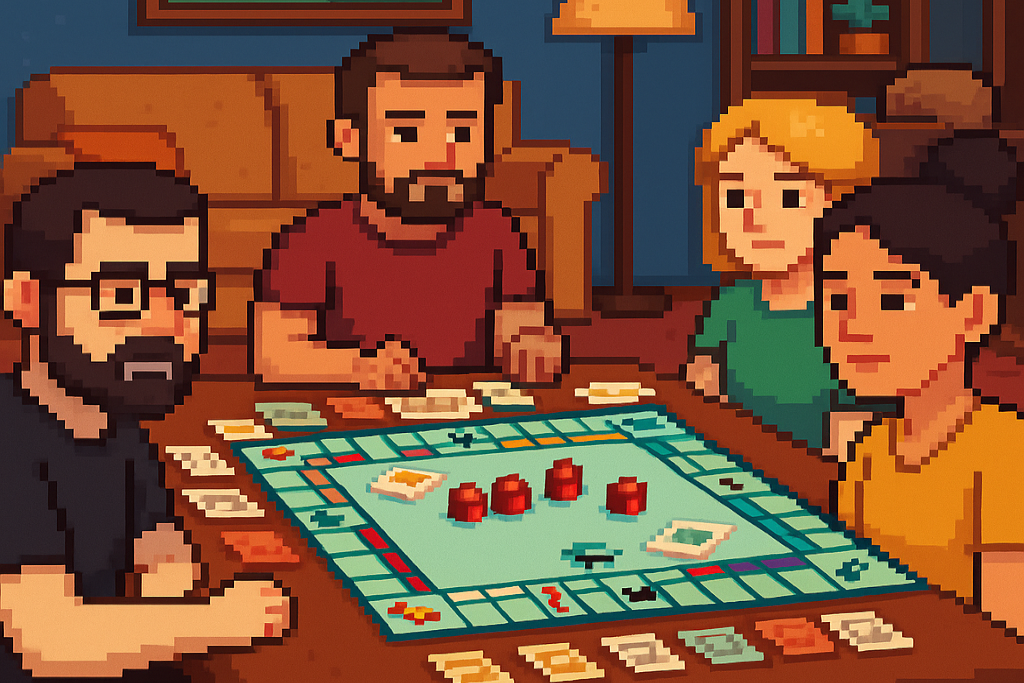Reading time: 5 min
People act like board games are fossils — relics of the pre-internet dark ages. The assumption is they belong in the same box as VHS tapes and cassette players: dead, dusty, irrelevant. Wrong. Board games never died. They’ve been here the whole damn time, quietly ruining friendships, teaching life lessons, and reminding us that cardboard is more dangerous than any GPU.
And honestly? They’re still awesome.
The Magic of Cardboard Chaos
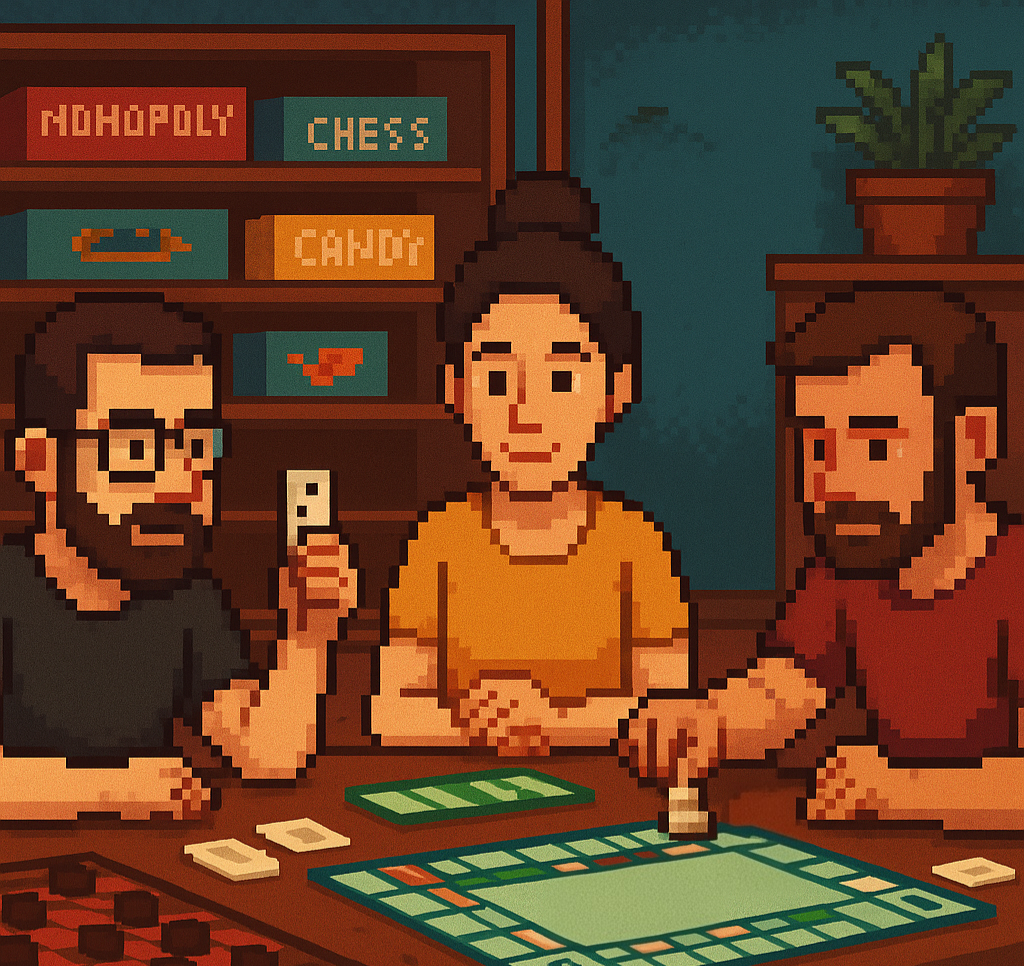
Here’s the thing: board games don’t need charging, don’t need Wi-Fi, and don’t need six-hour patches. They’re just pieces on a table. Instant fun.
Play them anywhere — living room, beach, camping trip, middle of the desert. Try that with a PlayStation. Spoiler: doesn’t work. But a chess set? Dominoes? Monopoly? Those are portable little chaos engines.
And unlike sitting in a café where “socializing” means pretending to care about someone’s boring work stories, board games make interaction fun. You don’t small talk; you trash talk. You don’t nod politely; you laugh your ass off.
Forged in Childhood Chaos
My love for board games goes way back. Childhood in my house meant five-hour Monopoly marathons with my dad, uncles, and cousins. My dad? Ruthless land shark. My uncles? Professional cheaters, the type who’d sneak $200 when you weren’t looking. And us kids? Dumb enough to hand over prime property for scraps.
It was brutal, it was unfair, and it was glorious. Those nights trained me. Monopoly wasn’t just a game; it was combat training for future cardboard wars.
The Monopoly Brain
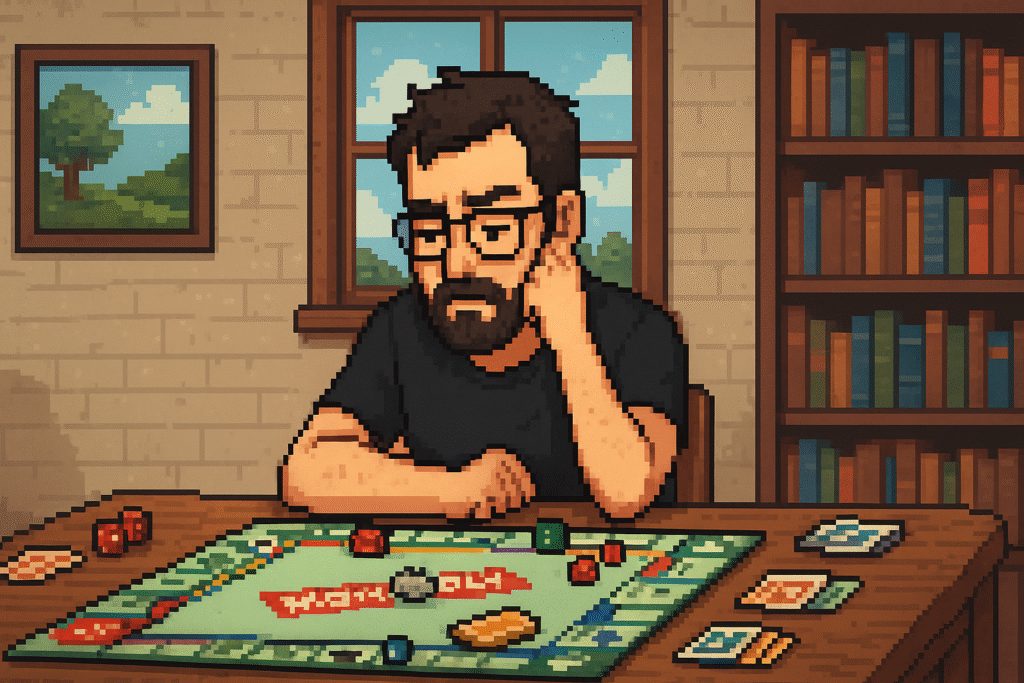
Fast forward to today, and I’m a walking Monopoly algorithm. I calculate ten moves ahead for four players at once. I know when you’re screwed before you do. I can see the whole economy unfold while everyone else is still debating Baltic Avenue.
My wife? She both loves and hates this. She hates watching me crunch numbers like a machine, but she also won’t let anyone else take me down. If someone tries to gang up on me, she swoops in like the IMF financing a collapsing economy.
She’s pulled genius moves — like selling me a green property cheap — not because she’s handing me victory on a plate, but because she knows how to stack me with hotels in just the right spots. That way, if I go down, it’s her hands pulling the trigger, not anyone else’s. She’s my partner in Monopoly crime. The Bonnie to my cardboard Clyde.
Dreams were made and dreams died on that board — usually on the squares with my three hotels.
Cousin the Chess God
And then there’s my cousin. Monopoly? He’s broke in half an hour, begging for bailouts. Chess? Whole different story. The guy’s a champion — tournaments, medals, the works.
Playing him in chess feels like being an ape discovering fire. I’m pushing rocks in the sand while he’s casually rewriting The Art of War. In Monopoly I’m the supercomputer, in chess I’m prehistoric. That’s the beauty of board games — the playing field shifts depending on the box.
Why They Still Matter
Board games hit different because they’re real. You can’t hide behind a screen. You sit across from people, see their smirks, hear their jokes, and feel the tension in the room. It’s socializing with actual commitment.
And every game tells you something:
- Who’s patient.
- Who’s sneaky.
- Who’s ruthless.
- Who’s just there for chaos.
It’s a social X-ray.
And unlike online games where “haha” means dead mic laughter, board games give you real laughs. The kind of stories that live forever. My dad the shark. My uncles the cheaters. My cousin’s rise and fall. My wife’s protective, strategic financing. These are legends that come back every family gathering.
Dominoes, Jenga, and Other Crimes Against Humanity
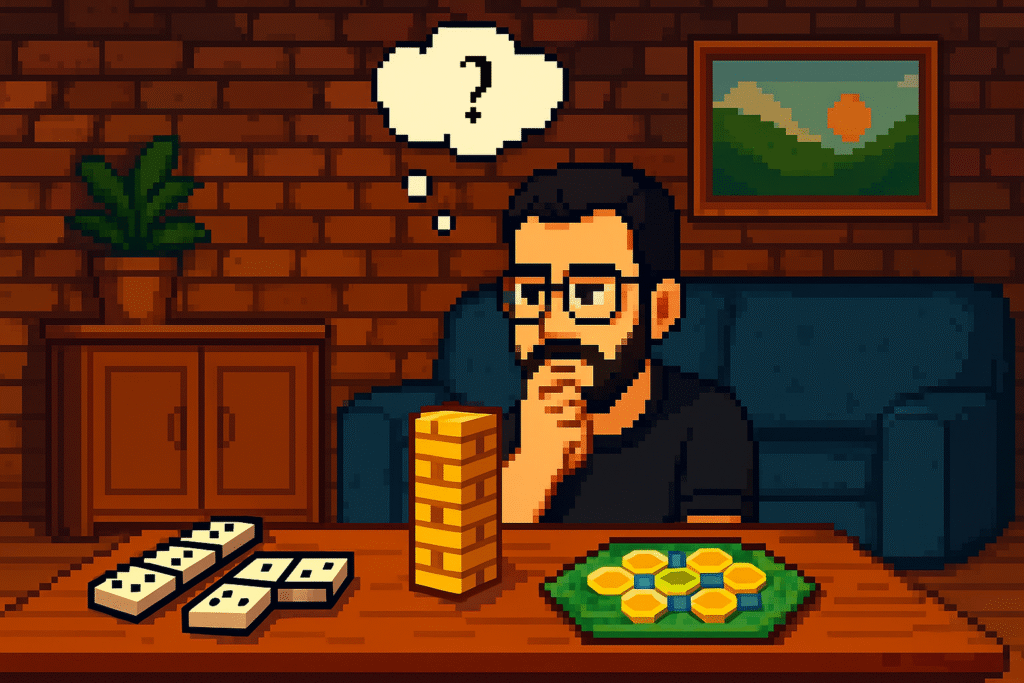
It’s not just Monopoly and chess. Dominoes? That’s basically organized crime with tiles. I’ve seen uncles slam down a double six like it’s a mafia hit.
And Jenga — innocent blocks, right? Wrong. That tower turns grown adults into trembling wrecks. The trash talk when someone’s hand shakes pulling out a piece should be illegal.
These “simple” games prove it’s never about complexity. It’s about the tension, the laughs, and the guaranteed chaos when humans gather around cardboard.
Modern Board Games: The New Wave
And yes, I know the classics aren’t the only ones around anymore. We’ve got Catan, Wingspan, Gloomhaven, Pandemic — modern board games that are just as addictive and sometimes more brutal. Kickstarter has pumped out enough indie board games to fill warehouses.
But whether it’s a new release or an old favorite, the formula’s the same: cardboard + people + time = chaos.
Why It Beats Doomscrolling
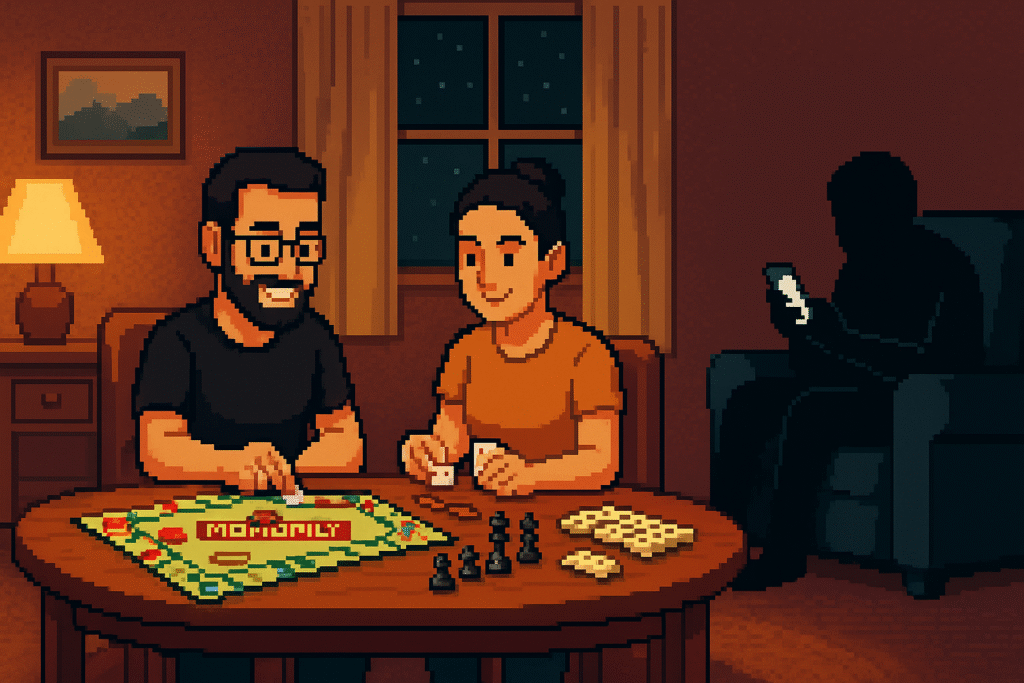
Here’s the thing: doomscrolling gives you nothing. Hours vanish, no stories are made. You don’t laugh years later about a TikTok you saw at 2 a.m. But board games? They give you memories. Stories. Family legends.
I’ll always remember my dad’s shark grin. My uncles sneaking money. My cousin’s humiliation in Monopoly. My wife’s fierce protection and brilliant setups. These aren’t just games — they’re family folklore.
Closing the Box
Board games are timeless. They’ve been here since before us, and they’ll be here after the next ten iPhones are outdated. They’re chaos engines. They’re memory machines. They’re cultural rituals.
Every time you crack open a box, you’re not just playing — you’re writing another story. Dreams rise, dreams collapse, alliances form, betrayals sting, and the laughter is real.
So yeah. They’re still awesome. Always were. Always will be.
Hey! Wanna see my rants about other things? Check this out: Random Blogs

